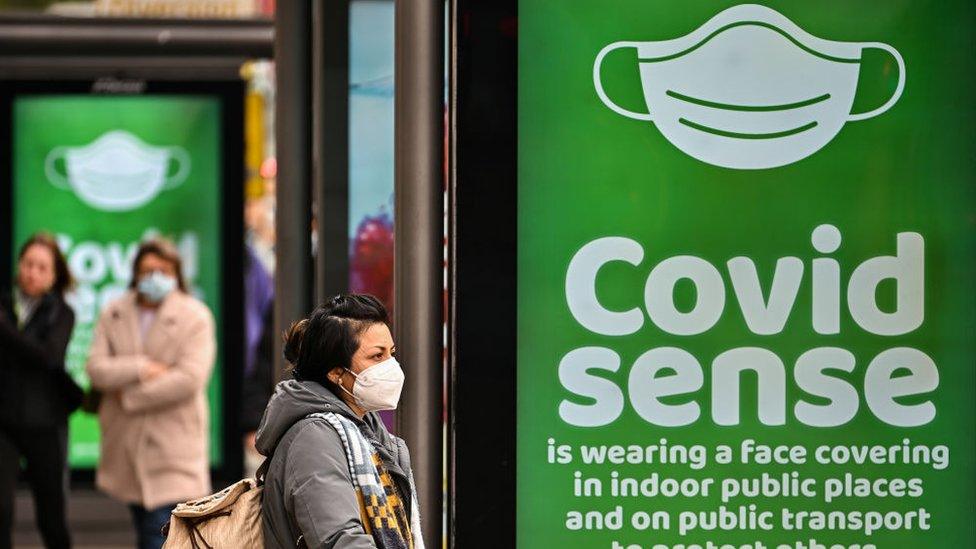Covid in Scotland: New restrictions 'inevitable'
- Published
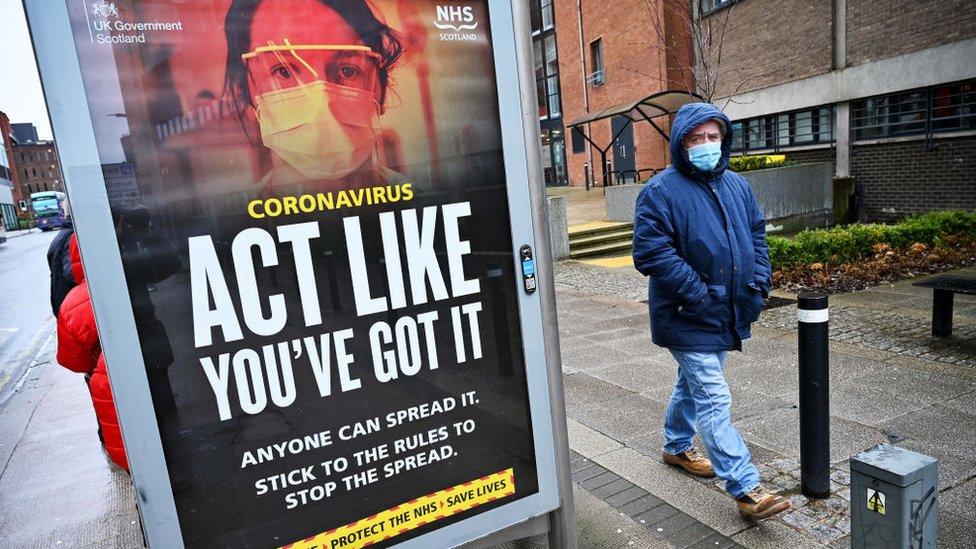
New Covid restrictions in Scotland are "inevitable", Health Secretary Humza Yousaf has warned.
He said the "sheer weight" of cases of the new Omicron variant could overwhelm the NHS and precautions would have to be taken.
It came as one teaching union called for the early closure of schools to protect pupils and staff.
Mr Yousaf said the government would do everything it could to keep schools open.
Meanwhile last week's advice to cancel Christmas parties is already having an effect, with hospitality businesses reporting a 25-30% drop in trade.
Details of the new restrictions would be given by the first minister in Holyrood on Tuesday, Mr Yousaf added.
He told BBC Radio's Good Morning Scotland: "I think it's inevitable we will announce additional protective measures.
"I would be reluctant to get into detail on that because we're working through that detail and the first minister rightly will update parliament tomorrow."
He added that securing financial support from the UK government would be very important.
It came after First Minister Nicola Sturgeon confirmed an ambition to offer boosters to all adults by the end of the year "if possible".
People aged 30-39 are now able to book a booster jab online, external, and appointments will be open to 18-29 year olds later in the week.
Early analysis of UK Omicron and Delta cases shows two doses of Covid vaccine are not enough to stop people catching the new variant.
But a booster prevents about 75% of people getting any Covid symptoms.
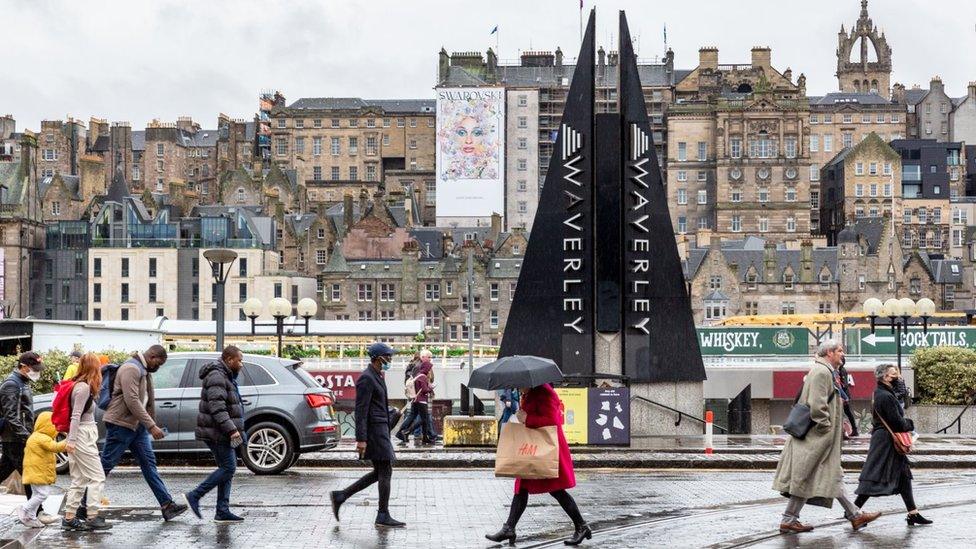
On Monday the UK recorded its first death of a patient with Omicron variant
Scientists have warned Omicron's higher rate of transmissibility meant cases were doubling every two or three days.
Prof Andrew Watterson, a public health expert from Stirling University, cautioned against an "over-reliance" on vaccines and stressed the booster campaign was "only one important strand".
"Boosters - yes. But other measures as well," he added.
As well as asking people to "defer" their Christmas parties last week, rules on self-isolation of household contacts were tightened.
Prof Watterson emphasised the importance of good ventilation and he said taking children out of school might be "very wise indeed".
Should schools be closed?
One teaching union called for schools to be closed for Christmas early, after a number of outbreaks of the variant in schools led to classes being forced to switch to online learning.
Scotland's largest teaching union, the EIS, said it wanted to see schools close on Friday. Most are expected to finish for Christmas next week.
Its general secretary, Larry Flanagan, said it would allow children and school staff to avoid being exposed to the virus in schools before mixing over the Christmas holidays. He also warned that younger unvaccinated people could drive some of the increase in the Omicron variant.
The NASUWT teachers' union stopped short of calling for schools to be closed early, but stressed that disruption to education cannot be prevented without preventing transmission in education settings. It called for protections of school staff and students to be increased.
In his morning radio interview, Mr Yousaf said the Scottish government would "be busting a gut" to stop education being disrupted.
However, he said closing schools early would be one of the options considered.
"We will do everything we possibly can to keep schools open," he added.


Ministers have been giving clear signals over the past week that we should expect a further tightening of Covid rules.
They have already advised against office Christmas parties and urged greater compliance with existing guidance including working from home where possible.
The first minister suggested last week that extending Covid certification was one option that would be considered.
Proving you've had two jags is likely to have slipped down the agenda now that it has become clear that double vaccination does not offer sufficient protection against Omicron.
Instead, I think the focus will be on measures to break the transmission of this new more infectious Covid strain.
Might more mask wearing help? Better ventilation in enclosed spaces? Does there need to be limits on how many people can gather together indoors, as is already the case in Ireland?
These will be among the questions I expect will be under consideration, with decisions made at Cabinet on Tuesday and any new measures likely to stop well short of the lockdowns of the past.

Meanwhile hospitality businesses have spoken out about the impact the new variant is having on the industry following advice that Christmas parties should be cancelled.
The Night Time Industries Association said its members had broadly seen a 25 - 30% reduction in trade over the weekend. It warned that bigger declines were expected this week as the bulk of the cancellations started to kick in.
Gavin Stevenson, the association's vice chairman, said it was "untenable" to expect the businesses to bear the cost associated with the cancelled parties.
One hospitality business said it had received more than 1,000 cancellations over a four-hour period.
The Signature Group, which owns bars, restaurants and hotels across Scotland, said despite the cancellations business had held up "OK" over the weekend with walk-ins.
Its director, Louise McLean, said the wider impact on the economy would need to be considered.


Do you have a question about Covid in Scotland? Use the form below to send it to us and we could be in touch.
In some cases your question will be published, displaying your name, age and location as you provide it, unless you state otherwise. Your contact details will never be published. Please ensure you have read the terms and conditions.
If you are reading this page on the BBC News app, you will need to visit the mobile version of the BBC website to submit your question on this topic.


Related topics
- Published13 December 2021
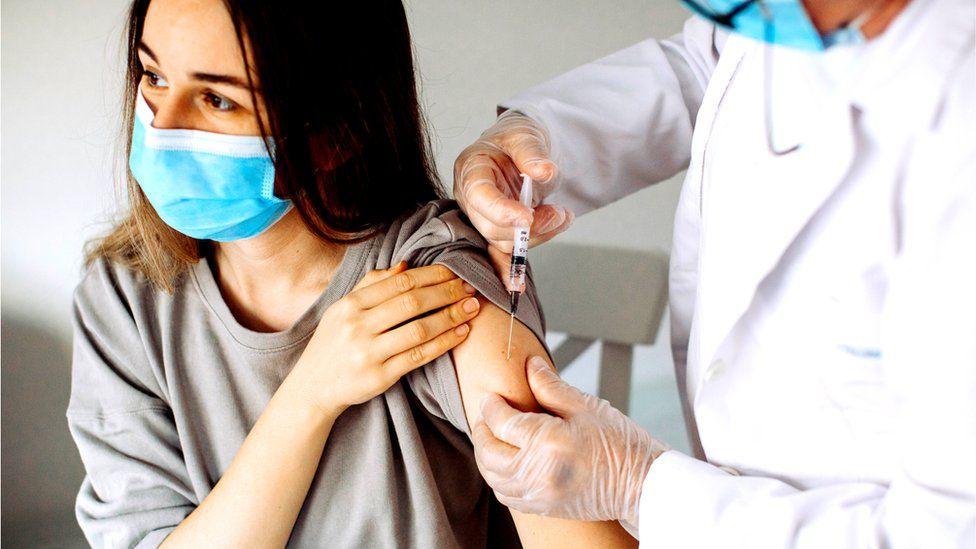
- Published13 December 2021
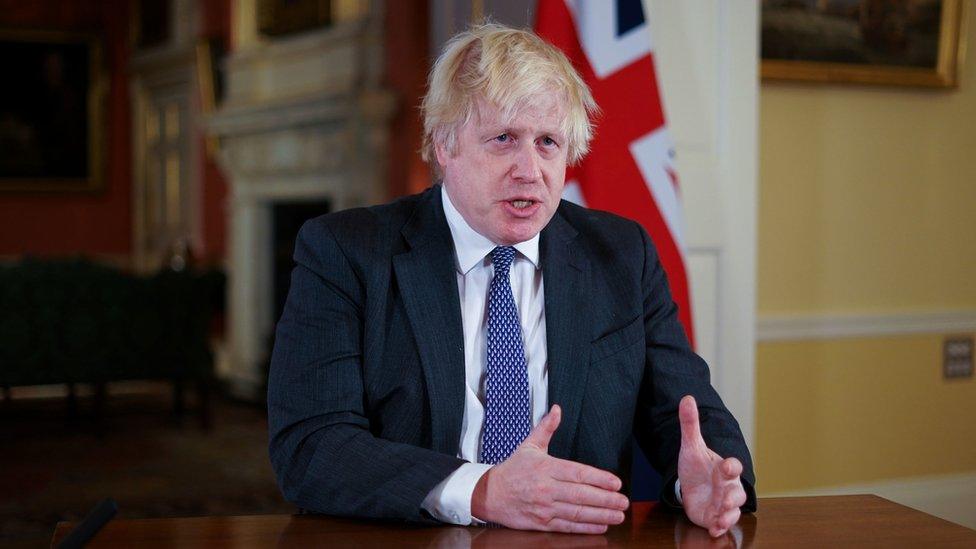
- Published12 December 2021
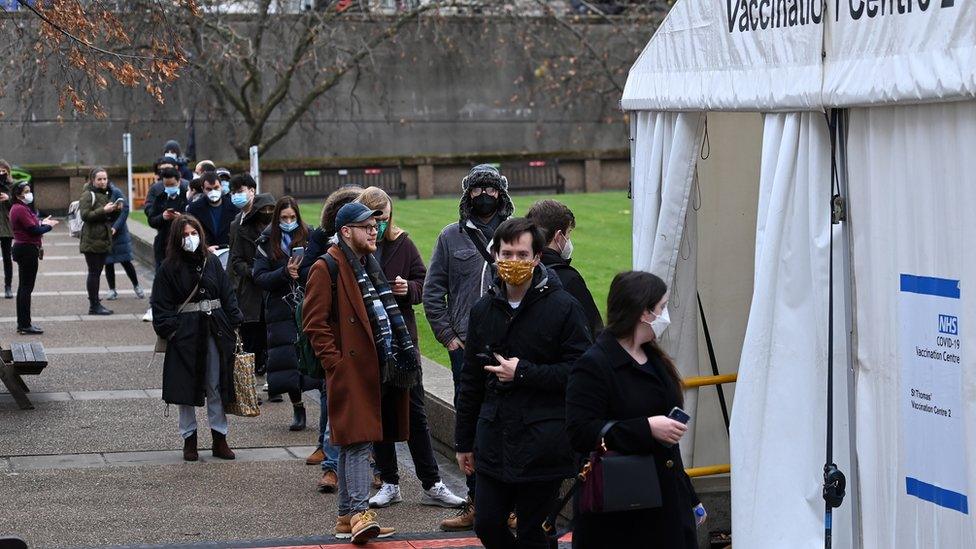
- Published11 December 2021
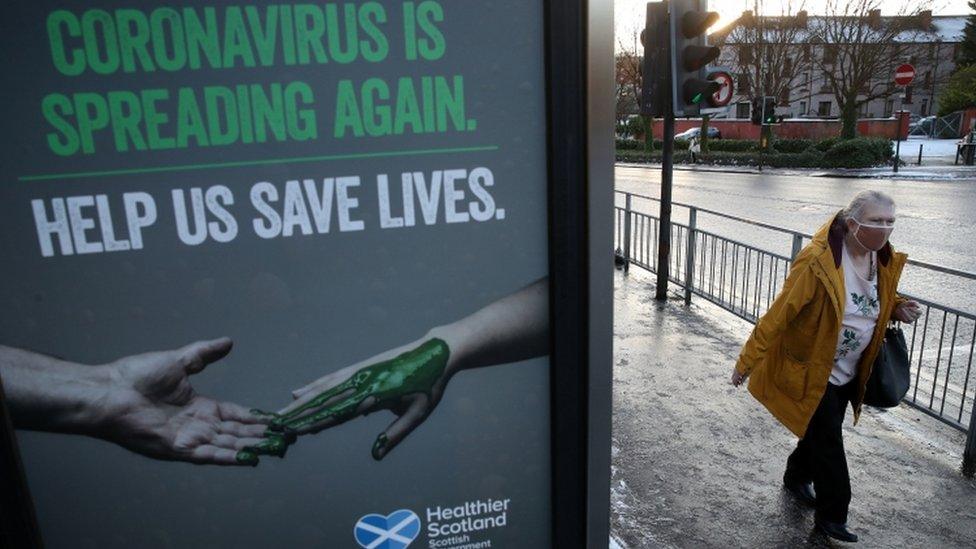
- Published1 July 2022
